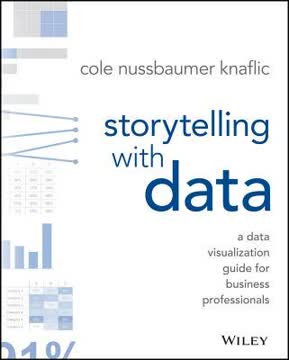Key Takeaways
1. Your BATNA is your most powerful negotiation tool
Nothing can help a negotiator get a bigger slice of the pie than having a great BATNA.
Understand your BATNA. Your Best Alternative To a Negotiated Agreement (BATNA) is the most important source of power in a negotiation. It represents your walkaway option if the negotiation fails. A strong BATNA gives you leverage and confidence.
Improve your BATNA. Actively work to strengthen your alternatives before and during negotiations. This might involve exploring other options, developing new opportunities, or enhancing your current position. The stronger your BATNA, the more power you have at the negotiation table.
Use your BATNA strategically. While you shouldn't reveal your exact BATNA, you can signal its strength to influence the other party. Be careful not to bluff about non-existent alternatives, as this can damage your credibility if discovered.
2. Effective preparation is crucial for successful negotiations
The 80–20 rule applies to negotiation: About 80% of your effort should go toward preparation; 20% should be the actual work involved in the negotiation.
Self-assessment. Before negotiating, clearly define your goals, interests, and priorities. Determine your target point (ideal outcome) and reservation point (walkaway point). Be aware of your own biases and tendencies.
Assess the other party. Research their interests, priorities, and potential BATNA. Try to anticipate their strategy and potential moves.
Analyze the situation. Consider:
- Is it a one-time deal or part of an ongoing relationship?
- Are there time constraints or deadlines?
- What are the potential risks and rewards?
- Are there cultural or legal factors to consider?
3. Expand the pie before slicing it
Win-win negotiation really means that all creative opportunities are leveraged and no resources are left on the table.
Look beyond zero-sum thinking. Most negotiations have integrative potential, meaning both parties can gain value simultaneously. Avoid the fixed-pie perception that assumes one party's gain is always the other's loss.
Strategies for expanding the pie:
- Identify multiple issues to negotiate
- Ask about interests and priorities
- Make package deals, not single-issue offers
- Make multiple equivalent offers simultaneously
- Use contingency contracts to capitalize on differences in expectations or risk tolerance
Create value, then claim it. Focus first on expanding the total value available (expanding the pie) before determining how to divide it (slicing the pie).
4. Develop a flexible negotiation style
The truly effective negotiator is neither tough as nails nor soft as pudding but, rather, principled.
Understand motivational orientations. Negotiators typically fall into three categories:
- Individualistic (focused on maximizing personal gain)
- Competitive (focused on outperforming the other party)
- Cooperative (focused on mutual gain)
Adapt your approach. Be prepared to shift between interests-based, rights-based, and power-based approaches as the situation demands. Each has its place in negotiations.
Balance assertiveness and empathy. Effective negotiators can advocate for their interests while still understanding and addressing the other party's concerns. This flexibility allows for more creative and mutually beneficial solutions.
5. Build trust and relationships for long-term success
Trust is essential in any relationship. It is an expression of confidence in another person or group of people that you will not be put at risk, harmed, or injured by their actions.
Types of trust:
- Deterrence-based (fear of consequences)
- Knowledge-based (predictability through information)
- Identification-based (emotional connection and shared values)
Strategies for building trust:
- Be consistent and follow through on commitments
- Communicate openly and transparently
- Show vulnerability and admit mistakes
- Find common ground and shared interests
- Use reciprocity to build goodwill
Repair trust when broken. When trust is violated, take responsibility, apologize sincerely, listen to the other party's concerns, and take concrete actions to rebuild the relationship.
6. Harness the power of persuasion ethically
Savvy negotiators prey upon people's need to be approved of and respected by others and their need to believe they are rational and logical.
Understand persuasion routes:
- Central route: Appeals to logic and reason
- Peripheral route: Relies on emotional cues and subconscious influences
Ethical persuasion tactics:
- Use the power of social proof
- Frame options effectively
- Leverage reciprocity
- Establish credibility and expertise
- Appeal to shared values and interests
Be aware of manipulation. Recognize common manipulation tactics like artificial scarcity, false deadlines, or emotional appeals. Use this knowledge to protect yourself and avoid using unethical tactics on others.
7. Navigate ethical dilemmas in negotiations with integrity
Ethics are a manifestation of cultural, contextual, and interpersonal norms that render certain strategies and behaviors unacceptable.
Understand ethical gray areas. While outright lying about material facts is clearly unethical, many negotiation tactics fall into ambiguous territory. Examples include:
- Exaggerating your position
- Withholding information about preferences
- Bluffing about alternatives
Develop personal ethical standards. Consider:
- What tactics would you be comfortable having used against you?
- How would your actions look if made public?
- Are you maintaining your integrity and long-term reputation?
Balance effectiveness and ethics. Strive to be an effective negotiator while staying true to your values. Remember that unethical behavior can damage relationships and reputations, potentially harming long-term interests.
Last updated:
FAQ
What's The Mind and Heart of the Negotiator about?
- Dual Focus: The book explores both cognitive strategies and emotional intelligence in negotiation, emphasizing the need to balance economic value with relationship building.
- Structured Approach: It is divided into three main sections: negotiation essentials, skills, and complex negotiations, providing a comprehensive framework for understanding negotiation.
- Real-World Relevance: The author uses examples from business, politics, and personal interactions to illustrate the application of negotiation theories in real-life scenarios.
Why should I read The Mind and Heart of the Negotiator?
- Skill Enhancement: The book offers actionable strategies to improve negotiation skills in both high-stakes and everyday situations.
- Research-Based Insights: It incorporates findings from over 175 scientific articles, ensuring that the advice is grounded in empirical research.
- Personalized Learning: Self-assessment tools and quizzes allow readers to reflect on their negotiation styles and identify areas for improvement.
What are the key takeaways of The Mind and Heart of the Negotiator?
- Balance is Key: Successful negotiation requires balancing rational strategies with emotional intelligence for effective outcomes.
- Preparation Importance: Thorough preparation, including understanding your BATNA and situational awareness, is crucial for negotiation success.
- Integrative Techniques: Strategies like separating positions from interests and using multi-issue offers help create win-win agreements.
What is BATNA and why is it important in negotiation?
- Definition: BATNA stands for Best Alternative to a Negotiated Agreement, serving as a benchmark for evaluating offers.
- Negotiation Power: Knowing your BATNA provides leverage, allowing informed decisions about accepting offers or walking away.
- Dynamic Nature: BATNA can change based on market conditions and actions, requiring regular assessment and enhancement.
How does The Mind and Heart of the Negotiator define integrative negotiation?
- Joint Value Creation: Integrative negotiation focuses on expanding resources for win-win outcomes, contrasting with distributive negotiation.
- Interest Identification: Understanding underlying interests rather than just positions allows for creative solutions satisfying both parties.
- Pareto Optimality: The goal is to reach agreements where no party can be better off without making the other worse off, capturing all potential value.
What strategies does The Mind and Heart of the Negotiator suggest for expanding the pie in negotiations?
- Separate Positions from Interests: Distinguishing between demands and needs allows for creative solutions that satisfy both parties.
- Engage in Interest Discussions: Asking questions about priorities can uncover mutual gain opportunities, fostering collaboration and trust.
- Use Multi-Issue Offers: Presenting multiple equivalent offers simultaneously facilitates integrative agreements through exploring trade-offs.
What are the common negotiation traps mentioned in The Mind and Heart of the Negotiator?
- Leaving Money on the Table: Failing to recognize mutual gain potential leads to suboptimal agreements.
- Settling for Too Little: Known as the "winner's curse," excessive concessions result in less favorable agreements than alternatives.
- Walking Away Unnecessarily: Rejecting better offers due to pride or miscalculation highlights the importance of knowing when to walk away.
How does gender influence negotiation behavior and outcomes according to The Mind and Heart of the Negotiator?
- Opening Offers: Women tend to set lower aspirations and make less aggressive offers, leading to less favorable outcomes.
- Backlash Effect: Assertive women may face social backlash, discouraging them from advocating for their interests.
- Negotiation Initiation: Women are less likely to initiate negotiations, contributing to disparities like the gender wage gap.
What is the role of emotional intelligence in negotiation as discussed in The Mind and Heart of the Negotiator?
- Emotion Management: Recognizing and managing emotions is crucial for maintaining a constructive negotiation atmosphere.
- Trust Building: Emotional intelligence helps build rapport and trust, essential for successful negotiations.
- Conflict Resolution: High emotional intelligence facilitates conflict resolution by navigating contentious situations effectively.
What are the best quotes from The Mind and Heart of the Negotiator and what do they mean?
- "Emotions are inevitable in conflict and negotiations.": Emphasizes that emotions are a natural part of negotiations, impacting outcomes significantly.
- "Negotiation is not a zero-sum game.": Encourages a collaborative mindset, highlighting that negotiations can lead to mutually beneficial outcomes.
- "Trust is the willingness to make oneself vulnerable to another person.": Underlines the foundational role of trust, indicating vulnerability as key to effective negotiation relationships.
How does The Mind and Heart of the Negotiator address the psychological aspects of negotiation?
- Cognitive Biases: Discusses biases like overconfidence and framing effect, which can affect negotiation outcomes.
- Emotional Intelligence: Emphasizes the role of emotional intelligence in reading and responding to emotions effectively.
- Social Dynamics: Explores how power imbalances and group identities influence negotiation behavior.
What ethical considerations are discussed in The Mind and Heart of the Negotiator?
- Ethical Standards: Highlights the importance of maintaining ethics, as unethical behavior can damage reputations and relationships.
- Self-Serving Bias: Discusses how cognitive biases lead to ethically questionable behaviors without realization.
- Responding to Unethical Tactics: Provides strategies for neutralizing unethical tactics, emphasizing vigilance and integrity.
Review Summary
The Mind and Heart of the Negotiator receives mixed reviews, with an overall rating of 3.77/5. Readers appreciate its comprehensive overview of negotiation techniques, clear explanations, and practical examples. Many find it informative and well-organized, praising its coverage of various aspects like online and intercultural negotiating. Some criticize its lack of depth on certain topics, while others consider it the best negotiation book available. It's described as a useful textbook for negotiation courses, though some find it dry or too technical for casual reading.
Similar Books
Download PDF
Download EPUB
.epub digital book format is ideal for reading ebooks on phones, tablets, and e-readers.











